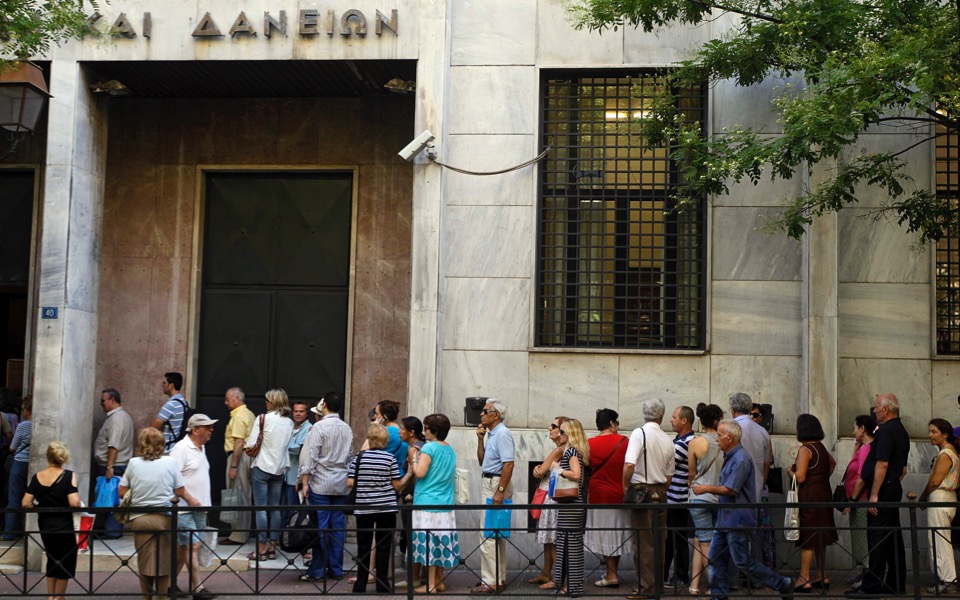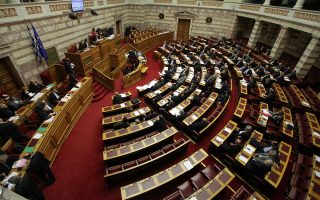A year of living under the capital controls

June 29 marked one year since the Greek government imposed capital controls, and also the end of the tumultuous talks with creditors. The government insisted that it was a “brave negotiation,” yet Bank of Greece Governor Yannis Stournaras said it came at a cost: a new memorandum worth 86 billion euros in bailout loans and restrictions on capital movements imposed after a flight of 45 billion euros in bank deposits.
The capital controls are what resulted from the government’s pledges that it would “tear up” the memorandums, “abolish” the so-called troika of lenders, erase Greece’s debts, bring an “end to austerity” and make “Europe change its policy.” After the elections of January 25, 2015, the coalition of SYRIZA and Independent Greeks acted on the hope that it would change everything, that the country’s creditors would give the country more money because otherwise they would risk the collapse of the eurozone. The clock was ticking and the completion of a deal was delayed from week to week, month to month. So, about five months after the elections, there was still no deal, deposits were shrinking rapidly and fears of Greece’s ouster from the common currency bloc were prevalent.
On Friday, June 26, 2015, the Greek government missed the deadline set by creditors to accept the deal that was on the table and responded by announcing a referendum in which the Greek people would decide whether they accepted the agreement or not. The date of the plebiscite was set for July 5. Shortly after the announcement, the European Central Bank made it known that it would no longer provide Greek banks with liquidity, deciding on a move that then finance minister Yanis Varoufakis has said was as likely as “the sun not rising tomorrow.”
On Monday, June 29, 2015, Greek banks did not open – for the first time since the end of the dictatorship – ATMs and internet and phone banking services were suspended, and banks worked day and night to adapt their systems to the new reality of capital controls. Now, a year later, the economy has sustained serious losses from this measure, according to bank officials, while any talk of attracting major investors while restrictions are still in place is nothing short of a bad joke.
Depositors in Greece are still not allowed to draw more than 420 euros a week, they cannot transfer money abroad, buy stocks, bonds or mutual funds or open new bank accounts and they cannot use their credit cards abroad, among many other limitations. Just think, if someone gets sick abroad, or is injured, they can’t seek treatment there without first getting approval (initially from the Approval Committee and now from the banks). Restrictions may have been relaxed on some transactions via internet banking, but the list of no-nos remains long and forbids most basic online purchases.
Likewise, most commercial transactions also need to receive approval from a special committee. In order to import goods (from foodstuffs to textiles) or raw materials, machinery or parts needed for industry, businesses need to apply for approval from the committee via their bank. Even though the procedure has become more efficient compared to the first few months of the restrictions, commercial transactions remain at very low levels. The biggest losers from the capital controls have been small and medium-sized enterprises, as, unlike larger companies, and multinationals particularly, they have few alternative ways to overcome the obstacles.
The Bank of Greece has been instrumental in reducing the impact of the capital controls by ensuring, in cooperation with the banks, the smooth operation of ATMs in the first few months and later in managing the mounting challenges presented by the restrictions.





